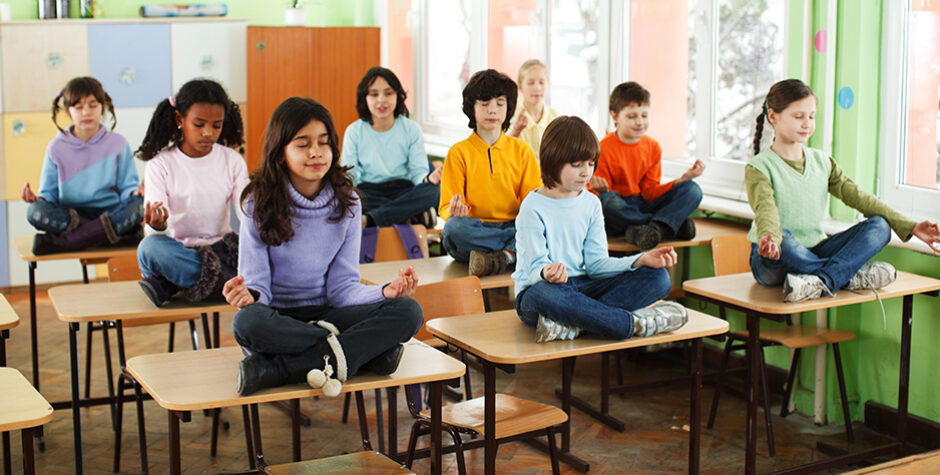ACLJ FOIA Investigation Reveals the Department of Education Has Been Pushing Buddhist-Based Mindfulness Programs in Public Schools for 7 Years
The ACLJ has recently unveiled the truth of Mindfulness’ infiltration into the United States’ public schools.
Through our two-year-long Freedom of Information Act (FOIA) investigation, the ACLJ has uncovered that the Department of Education (DOE) has been experimenting with Mindfulness programs starting all the way back in 2014.
It was in the fall of 2018 when concerned parents first began contacting the ACLJ regarding a strange new curriculum introduced into their children’s classrooms. We told you about our concerns regarding the Buddhist-based Mindfulness curriculum found in programs such as InnerExplorer, MindUp, and Mindful Schools. As we investigated more, we discovered the harmful beginnings of Mindfulness in America, and how Jon Kabat-Zinn, a practicing Buddhist, created a curriculum full of veiled Buddhist religion. We further detailed the documented harms that can come from meditation practices that guide children through the process of “clearing your mind” or “watching your thoughts float away on clouds.”
Now, the truth has come out that the Department of Education has been pushing this curriculum for years – long before parents became aware of the changes in curriculum in their schools. The DOE’s documents produced in response to our FOIA requests indicate that the DOE switched from using a Social-Emotional Learning (SEL) Curriculum through a program called Second Step – previously vetted by the ACLJ – to Jon Kabat-Zinn’s curriculum in 2014.
“The DOE IES Research Performance Progress Report for July 2014 through March 2015,” or the Mindfulness study, included quotes from Jon Kabat-Zinn as the study attempted to define Mindfulness and its purposes. In these studies spanning five years, the DOE reported that the schools in the study used “Zenergy Chimes,” or a Tibetan Bell for Buddhist religious ceremonies, to usher in the daily mindfulness practices. They implemented exercises that they called “cleansing breaths,” without much explanation as to what was being cleansed. They discussed the “Bubble Exercise” where they encouraged the children to watch their thoughts, like bubbles, float away or pop without allowing themselves to address the thoughts. Another similar practice is the “Puppy Mind” where you watch your thoughts race like a little puppy and practice “letting go/letting be.” The description further explains that these exercises “ask us to allow all of it to pass without holding on. Initially, this means resting one’s physical sensations while thoughts and emotions cascade by.” These practices emulate the similar “cloud” exercises that we dissected for you in the past.
Most disconcerting is the DOE’s description of one of the goals of mindfulness: “These practices continue the process of turning inward to our experience and paying attention in a particular way to allow oneself to be present moment to moment non-judgmentally.” While these words might sound soothing, in reality this is a description of the Buddhist practice of finding your inner peace within oneself with the understanding that nirvana can only be found within.As we have explained, this is completely counter to our Christian belief that our inner self is sinful, and the only way to redemption is through Christ.
Now that the ACLJ has exposed that the DOE has given its full support for this dangerous Mindfulness curriculum, how can you, as a parent, best protect your children? Parents must speak up and voice their opposition to these programs. We have prepared an informational memo which contains helpful information regarding mindfulness programs, the research cautioning against the implementation of these programs, as well as legal discussion to assist parents in addressing the issue with teachers, school officials, and local school boards. It takes grassroots actions, where parents like you stand up and demand change. It’s time to take back your children’s education.
You can view the 2,000-page document production we obtained from the Department of Education here: Part 1 (102.3mb) | Part 2 (107.4mb).
